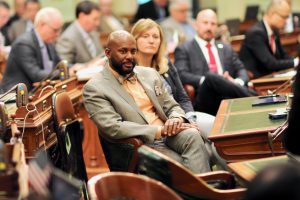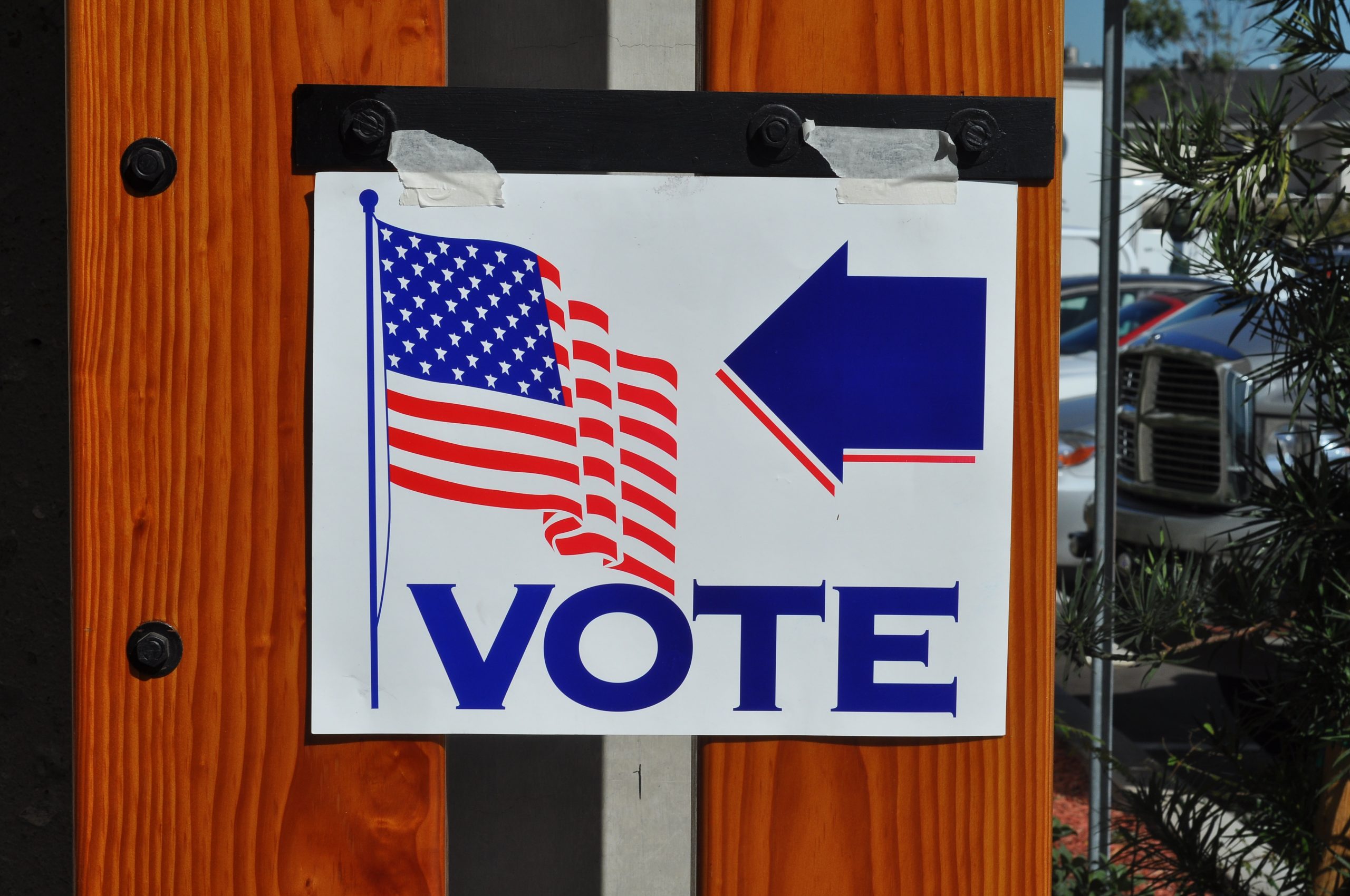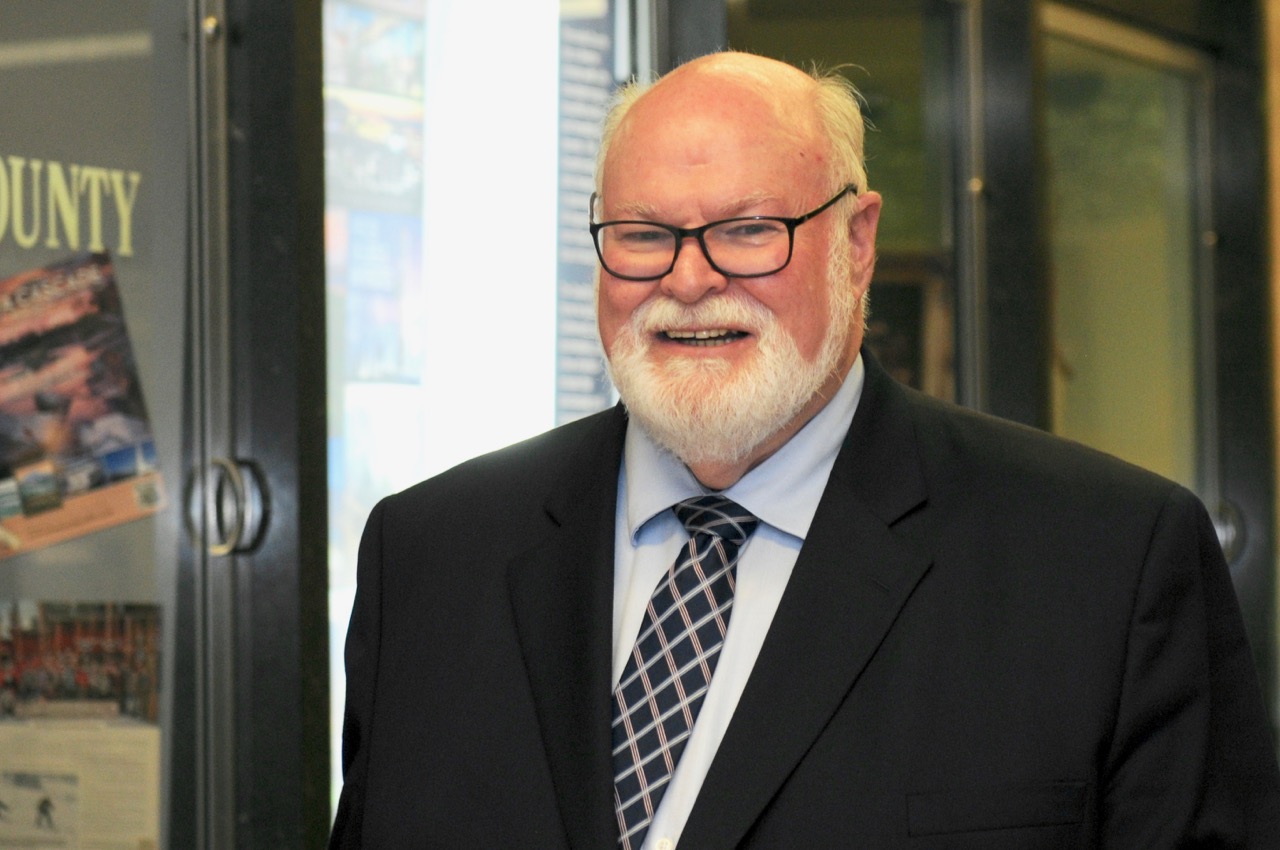
FBI photo
CA Bill Guarantees New ‘Rights’ to Foster Kids, Promotes Abortions, Rape Care, Phone Calls, Texts and Privacy From Adults
Human sex trafficking in the U.S. disproportionately affects foster youth
By Katy Grimes, July 11, 2019 9:36 am
60 percent of all child sex trafficking victims have histories in the child welfare system
A foster care bill currently in the California legislature, guarantees rights to foster children that should raise the hackles of anyone concerned with child sex trafficking.
AB 175, by Assemblyman Mike Gipson (D-Carson), provides for an expanded “Bill of Rights” for foster children, that allows the right to abortions, contraception, and medical treatment for rape “without the knowledge or consent of any adult.”

“AB 175 also mandates that foster kids get access to the Internet and privacy from nosy foster parents seeking to monitor phone calls, texting, and emails,” Greg Burt with the California Family Counsel reported. Given how many children are stalked on the Internet by sexual predators, this bill appears to play right into their hands.
The only umbrella of protection foster children receive through foster parents could be removed if AB 175 passes.
According to the FBI, sex and human trafficking in the U.S. disproportionately affects foster youth. “In the U.S., the FBI estimates that over 100,000 children are victims of sex trafficking. Foster children are particularly vulnerable to falling victim to sex trafficking and other forms of human trafficking.”
The FBI reports that 60 percent of all child sex trafficking victims have histories in the child welfare system.
“Increasingly, traffickers are using fear tactics to lure children and youth into commercial sex acts and/or compelled labor,” Youth.gov reports. “Young people, especially those with risk factors, are vulnerable to human trafficking. The Administration for Children and Families at the U.S. Department of Health and Human Services issued new guidance on child trafficking to child welfare systems and runaway and homeless youth programs because of increased vulnerability to trafficking for youth who have experienced prior abuse or who have run away from home.”
With all of the federal government concerns about the vulnerability of foster youth, why would the California Legislature support a bill to lessen adult supervision of vulnerable foster children?
Highlights in AB 175, including exact language allows the foster child to:
- contact the Community Care Licensing Division of DSS or the State Foster Care Ombudsperson regarding violations of rights, to speak to representatives of these offices confidentially, and to be free from threats or punishment for making complaints;
- make and receive confidential telephone calls and send and receive unopened mail, unless prohibited by court order;
- maintain an emancipation bank account and manage personal income, consistent with the child’s age and developmental level, unless prohibited by the case plan;
- be free from unreasonable searches of personal belongings;
- be placed in out-of-home care according to their gender identity, regardless of the gender or sex listed in their court or child welfare records;
- have caregivers and child welfare personnel who have received instruction on cultural competency and sensitivity relating to, and best practices for, providing adequate care to lesbian, gay, bisexual, and transgender youth in out-of-home care;
- have access to age-appropriate, medically accurate information about reproductive health care, the prevention of unplanned pregnancy, and the prevention and treatment of sexually transmitted infections at 12 years of age or older
- Establishes the Foster Child Ombudsperson Program (§ 16160 et seq.) as an autonomous entity within DSS for the purpose of providing children who are placed in foster care with a means to resolve issues related to their care, placement, or services (§ 16161). Requires the Ombudsperson to, among other things, disseminate information regarding its services and the rights of foster youth, develop standardized information explaining those rights, and compile and make available to the Legislature all data collected by the Ombudsperson, including specified data regarding complaints made to the Ombudsperson and investigations conducted by the Ombudsperson.
- Additionally, the bill would establish that a foster youth has the right to age appropriate, medically accurate information about reproductive health care, the prevention of unplanned pregnancy, and the prevention and treatment of sexually transmitted infections. Existing law establishes this right at age 12; this bill omits this age limit. However, existing section 16501.1(g)(20) also requires that social workers ensure foster youth, beginning at age 10, are educated about their sexual and reproductive health rights.
“Traffickers are experts at using mobile applications to find and lure children into sex trafficking rings, and this is where children spend the majority of their time,” one human behavior expert explains. “Sex traffickers have access to commonly used apps such as WeChat, Instagram, Snapchat, Kik, online games, Whisper, YikYak, Facebook, and many others.”
The bill also provides that foster youth has the right to:
- at any age, consent to or decline services regarding contraception, pregnancy and perinatal care, including, but not limited to, abortion services and health care services for sexual assault without the knowledge or consent of any adult; and
- at 12 years of age or older, consent to or decline health care services to prevent, test for, or treat sexually transmitted diseases, including HIV, and mental health services, without the consent or knowledge of any adult.
The umbrella of protection foster children receive is about to be removed if AB 175 passes.
The bill is sponsored by California Youth Connection, located in Oakland, CA.
“We are proud to share the third and final State of the Community report developed by our Nostigma Nobarriers Project!” their website says. “’POWER: Elevating Youth Voice and Engagement in transition age youth (TAY) Mental Health Services’ celebrates the work of the No Stigma No Barriers Board, CYC staff, Mental Health Services Oversight and Accountability Commission, and community partners, and shares the perspectives and recommendations of the young people who have led the three-year project. We hope their voices will inspire the community to put youth voice at the center of analysis, planning, and oversight of California’s TAY mental health services.”
The No Stigma No Barriers group says, “For those who are transitioning out of the foster care or juvenile justice system, these tasks are even more formidable.”
“While California has been a leader in statewide youth-led policy advocacy in areas such as foster care and the impact of incarceration on families, TAY mental health services in most of our 58 counties are still largely planned and implemented by adults,” No Stigma No Barriers group says. “Experience shows that these services are not effective for many of the youth who need them and who suffer long term disconnection from education, employment, and relationships as a result. The No Stigma, No Barriers (NSNB) Collaborative was formed to help change this.”
The Charity Navigator rating for California Youth Connection is mixed in that they do not have audited financials or their IRS Form 990 tax returns available on their website. The form 990 shows:
- California Youth Connection received $1,814,858 in government grants
- $841,762 in other grants, gifts and contributions
- $1,444,705 on salaries – compensation of officers, directors, of $129,978, “other salaries $1,084,300
- “Other benefits” $115,349
- $1,404,211 in “other expenses”
- $277,097 in travel
- $124,241 in “occupancy,” which if it is rent, is $10,353 per month;
- more “other” expenses of $678,255
- Office expenses $66,099
- IT expenses $17,998
- “All other expenses” $12,634
- Equipment rentals $6,680
- Miscellaneous expenses $11,948
Actual Program expenses $149,259, while directors and staff apparently spend $277,097 on travel.
Support for AB 175 comes from: California Youth Connection (sponsor), Alliance for Children’s Rights, American Civil Liberties Union, California Civil Liberties Advocacy, California Court Appointed Special Advocate Association, California Public Defenders Association, California State PTA, California Teachers Association, County Behavioral Health Directors Association of California, East Bay Children’s Law Offices, Juvenile Court Judges of California, Lincoln, Los Angeles County Board of Supervisors, National Association of Social Workers, California Chapter National Center for Youth Law, Seneca Family of Agencies, Stonewall Democratic Club, The Anti-Defamation League.
Opposing AB 175 are: American College of Pediatricians, California Catholic Conference, California Family Council, Eagle Forum of California, Pacific Justice Institute.
- While Newsom Fiddles, California’s Gas & Oil Crisis Ramps Up with Tensions Between the US and Iran - February 22, 2026
- Trump Responds, Issues Global 10% Tariff on all Countries - February 21, 2026
- What is Trump’s Plan B After Supreme Court Strikes Down Tariffs? - February 20, 2026





Thank you for writing about this Katy. AB 175 is DISGUSTING and WRONG and the people behind it need to be called out for hurting the very foster children they are charged with protecting.
Thank you also for citing the FBI numbers that show “sex and human trafficking in the U.S. disproportionately affects foster youth” and making the connection to this current bill.
For the legislators and the radical groups behind them who apparently want to further weaken what few protections these already vulnerable foster children have, AB 175 sounds like a convenient partner bill for last year’s AB 2119, which exploits instances of gender-identity confusion in foster youth, even though it has been shown that such confusion appearing in adolescence tends to resolve itself in adulthood. Doesn’t matter to the exploiters!
https://californiafamily.org/2018/ca-bill-makes-sure-foster-kids-get-puberty-blocking-drugs-sex-change-operations/
These people are up to no good. Call your legislators and make a stink.